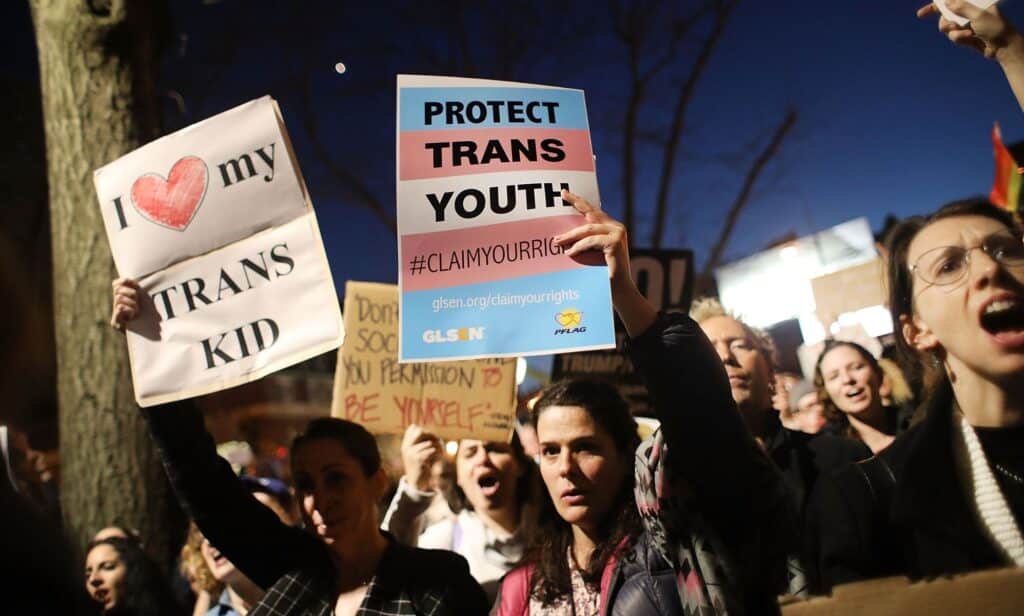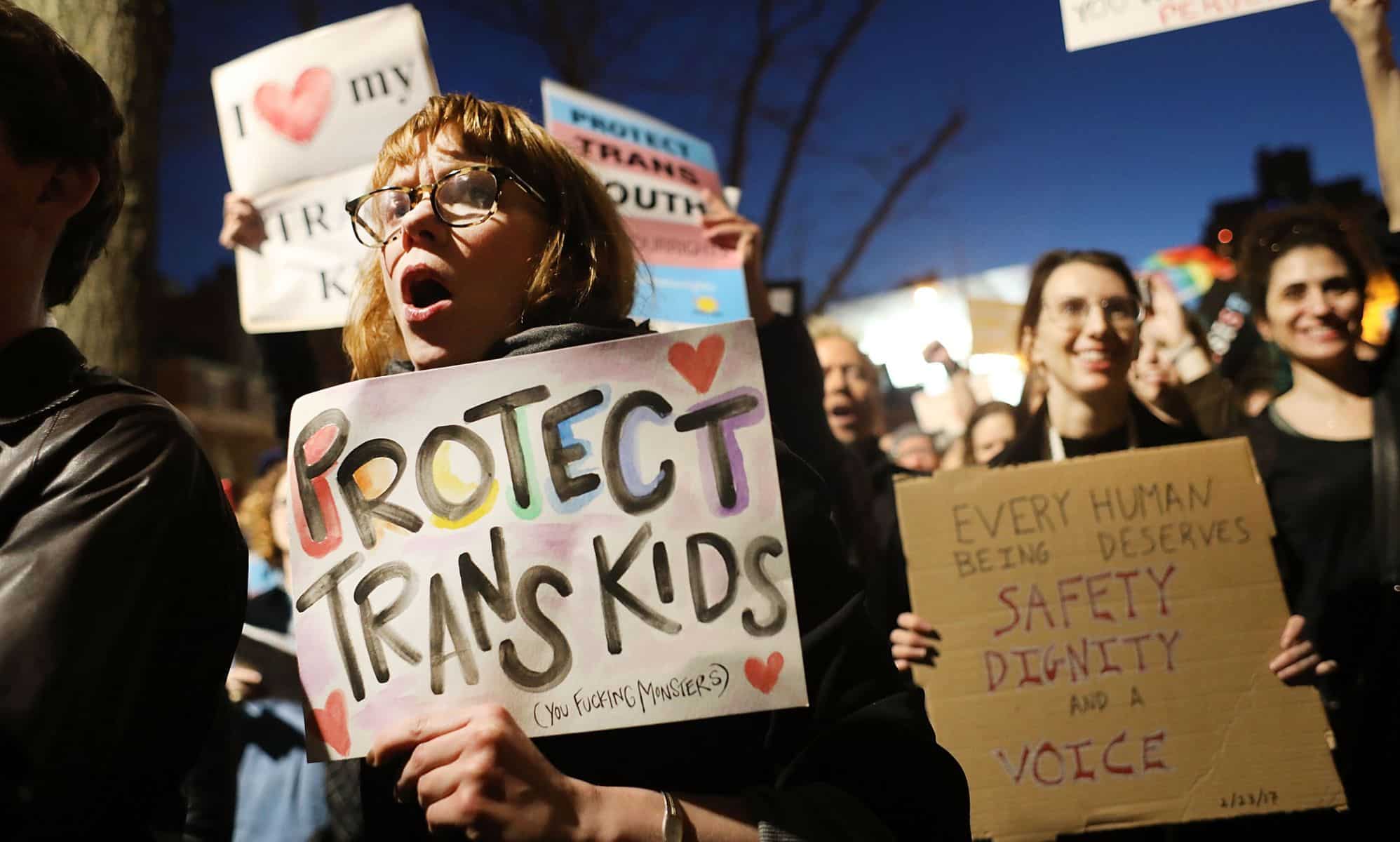The ruling has been hailed as a “critical victory” for trans youth, their families and their medical providers in Arkansas. (Getty/Spencer Platt)
A federal appeals court ruled Arkansas can’t enforce its ban on trans youth receiving gender-affirming medical care.
A three-judge panel on the eighth circuit court of appeals ordered a federal judge’s preliminary injunction to stay in place to stop the state from enforcing the 2021 anti-trans law. The law prohibits medical professionals in the state from offering healthcare such as puberty blockers and hormone treatment to trans youth.
A trial is slated to begin in October before the same judge, and the court will determine whether to permanently block the law.
The lawsuit was filed on behalf of four trans kids, their parents and two Arkansas doctors. The court of appeals sided with the plaintiffs who argued there was a “likelihood” that trans youth would face “irreparable harm” if the law went into force.
Chase Strangio, deputy director for Transgender Justice at the ACLU’s LGBTQ & HIV Project, called the ruling a “critical victory” for trans adolescents in Arkansas, their families and their medical providers.
“The eighth circuit was abundantly clear that the state’s ban on care does not advance any important governmental interest and the state’s defence of the law is lacking in legal or evidentiary support,” Strangio said. “The state has no business categorically singling out this care for prohibition.”
Strangio explained the ACLU is “determined to keep fighting this baseless law” until it is “permanently struck down”.
Arkansas was the first state in the US to enact a ban on trans youth accessing gender-affirming healthcare – which researchers have described as ‘life-saving’. The law was passed into law in April 2021 after the state’s legislature overrode governor Asa Hutchinson’s initial veto.

The ACLU and its Arkansas branch filed a lawsuit against the state’s first-in-the-nation law in May of that year. A short while later, a federal judge temporarily blocked the anti-trans law from going into effect as it is debated in courts.
Holly Dickinson, executive director of ACLU of Arkansas, said the appeals court affirmed that “no child should be denied the medical care they need”.
“Research shows that denying gender-affirming care to transgender youth contributes to depression, isolation, eating disorders, self-harm and suicide,” Dickinson said. “Transgender people deserve the right to live healthy lives without fear and discrimination.”
Arkansas attorney general Leslie Rutledge is planning to ask the full eighth circuit court of appeals to review the decision, a spokesperson told the Associated Press. The spokesperson said Rutledge was “extremely disappointed” by the ruling.
Tennessee, Arizona and Alabama have passed various anti-trans healthcare bans amid a broader Republican-led legislative attack against the LGBTQ+ community, especially the rights of the trans community.
An estimated 58,200 trans, non-binary or gender non-conforming youth are at risk of losing access to vital gender-affirming healthcare as a direct result of such attempts to ban such medical care.
A study by the Williams Institute at the UCLA School of Law found that 15 states have either banned access to gender-affirming care or considered laws that would severely restrict such treatments.
An estimated 53,800 trans kids aged 13 to 17, who live in these states, face potentially losing their ability to access gender-affirming healthcare. This represented nearly a third of the estimated 150,000 trans youth living in the US.
An additional 4,400 trans young adults living in Alabama, North Carolina and Oklahoma could risk losing access to gender-affirming medical care.
